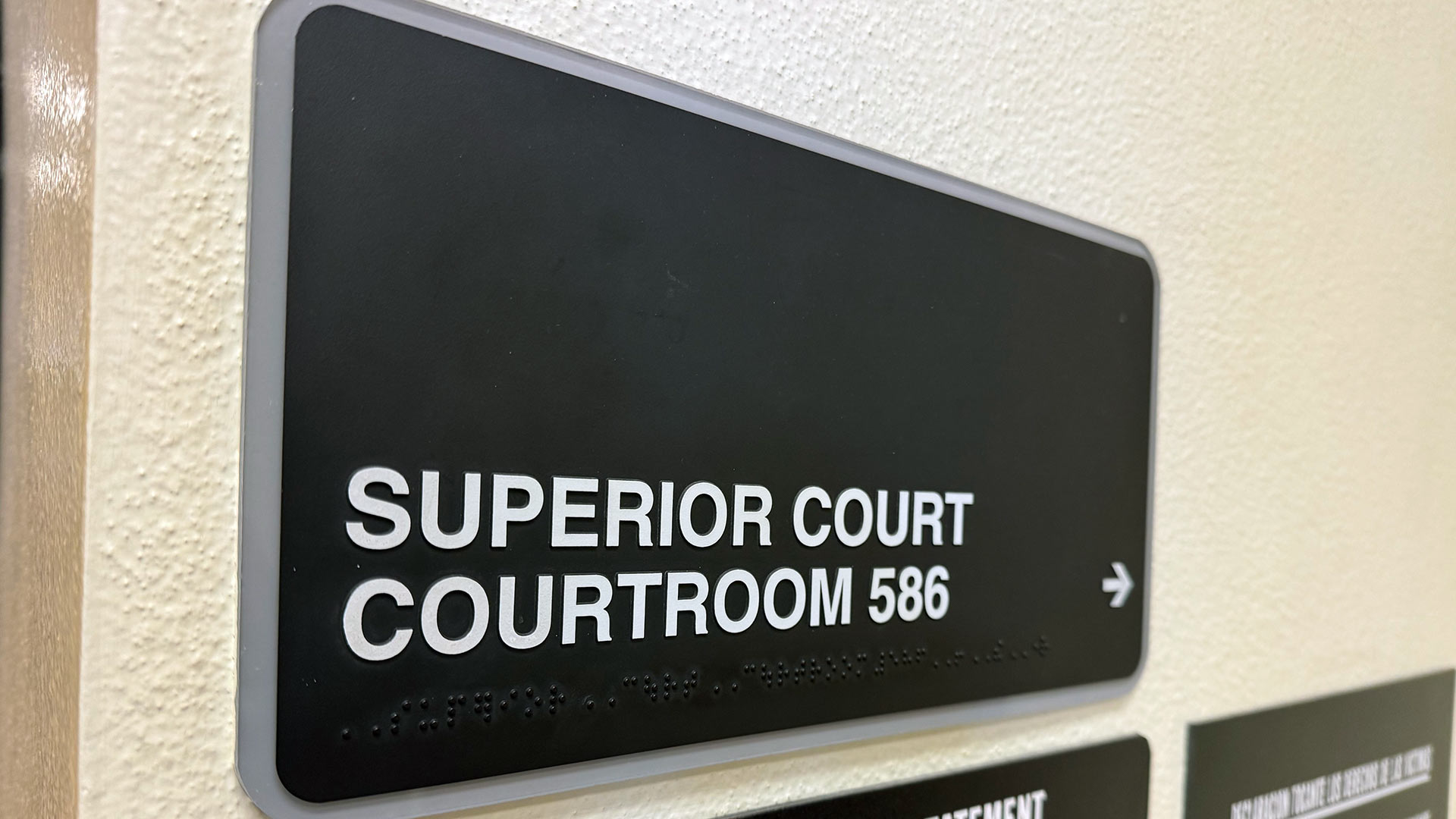 A courtroom sign at the Pima County Superior Court.
A courtroom sign at the Pima County Superior Court.
The case against former Pima County Sergeant Ricardo Garcia will be handed over to the jury after closing arguments were heard Thursday.
He faces two counts of sexual assault stemming from a School Resource Officer Christmas party in 2022.
Read testimony about the events of that night here.
Ricardo’s arrest, subsequent firing, and internal department backlash surrounding Garcia’s case have been a consistent point of contention within the Pima County Sheriff’s Department and on Pima County Sheriff Chris Nanos.
Garcia’s attorney Louis Fidel called the victim “extraordinary, unreliable, and even untruthful,” in closing arguments Thursday afternoon.
“She is the reasonable doubt because she contradicts those claims herself,” Fidel said.
Closing arguments reiterated the defense’s focus on the victim’s prior history with Garcia, and inconsistencies made in her initial statements to police, especially that she initially denied something happened.
Fidel brought up the victim’s $900 thousand dollar civil lawsuit against Garcia, Nanos, and other top leadership, and suggested she had changed her story because her colleagues were starting to talk.
“She has two choices. She can be shamed for this conduct when she was drunk because the rumor mill has started or she can claim a victim status. Maybe collect $900 dollars along the way,” Fidel said.
The victim testified she did not want to come forward with allegations due to the shame and embarrassment in having to reveal intimate details she did not remember to her colleagues, and that she feared retaliation due to Garcia’s relationship with Nanos.
On the other side, Mathew Cannon of the Santa Cruz County Attorney’s Office reminded the jury of the victim’s intoxication level, her lack of reaction to Aquino walking in on her in vulnerable positions, and her inability to answer questions or get dressed.
“If he's asking her, can you do it on your own? That means she can't do it on her own,” Cannon said.
While the defense argued consent was possible.
“We’ve all said and done things, or known someone who has said and done things when they were drunk that they regret. That doesn’t mean that they were unconscious. And merely being drunk does not mean, you’re too drunk to consent,” Fidel argued.
Then-Deputy Christopher Aquino described the victim’s intoxication level as “dead weight,” in his testimony.
In previous arguments, Louis Fidel called the phone call “subjective” in his Rule 20 attempt to dismiss the case, but besides that his questioning has not disputed the phone call that took place the morning after the party.
The victim testified Garcia told her they had sex, and repeatedly told her not to tell others she didn’t remember. Just hours later, she was summoned to make an official statement.
“Later, [redacted] is still coping with this confession she just heard from her boss, and a friend, that he had sex with her, and being told not to tell anybody that she didn't remember it,” he said.
Cannon argued, “She doesn't trust anyone. She doesn't know what to do. She doesn't know who to tell, what to tell. What she does, is what she's told to do by him. Don't tell. He was her supervisor.”
One area of near-agreement between the prosecution and defense is the fact the Sheriff’s department conducted a criminal investigation involving its own deputies, but each has harnessed the conflict of interest argument in different ways.
The defense has pointed to an evidence bag mix-up and suggested the victim was fed information from her peers and colleagues in interviews because she didn’t remember the events due to intoxication.
“Folks, this case is riddled with doubt, from the objective evidence to the unreliable statements to the rotten investigation,” Fidel said.
On the prosecution’s side, Cannon argued the conflict of interest is what caused the victim to hesitate in coming forward, but that the investigation is sound.
“Sheriff Nanos made a mistake. He should not have kept this investigation. What you heard several witnesses testify to on that stand, is that they agreed he shouldn’t have kept it but, Detective Hilborn and his staff’s investigation was done professionally and unbiased way, probably even more so than most, because they had an eye that this was going to be a problem,” Cannon said.
The judge is scheduled to deliver final instructions to the jury tomorrow morning, Dec. 13, at which point deliberations will begin.
Catch Up on Last Week’s Trial Coverage, and Further Context
Read a summary of this week’s testimony regarding conflict of interest concerns here
Read more about the first day of witnesses here, the second day of witnesses here, and the third day of witnesses here.
Garcia’s case sparked an Attorney General’s investigation into the Pima County Sheriff’s Department earlier this year, which found Sheriff Nanos potentially violated four areas of internal policy in his handling of the case.
Read more about the Attorney General’s findings here.

By submitting your comments, you hereby give AZPM the right to post your comments and potentially use them in any other form of media operated by this institution.